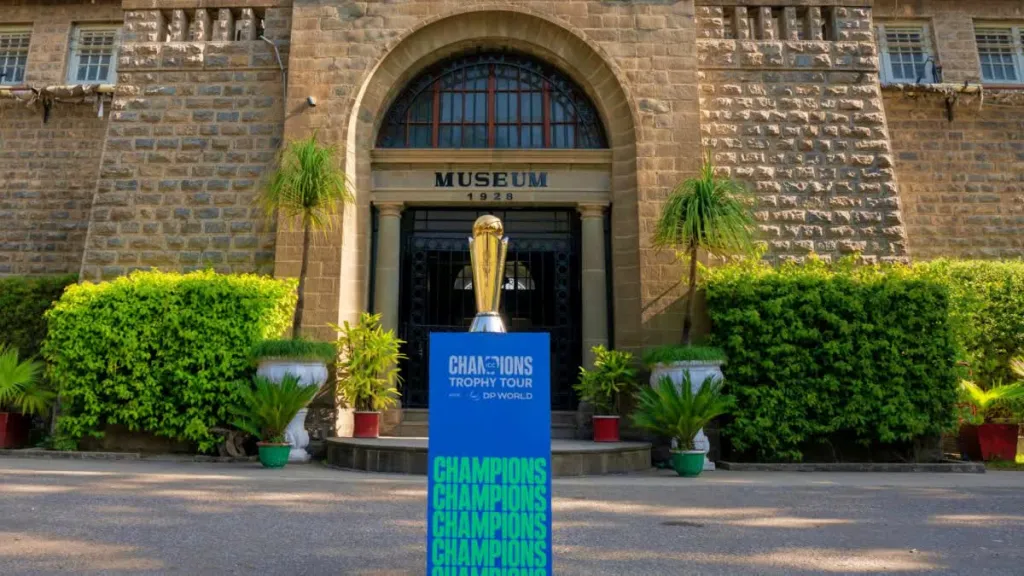The ongoing negotiations regarding the location and organization of the Champions Trophy 2025 have kept cricket enthusiasts on high alert. The International Cricket Council (ICC) Board has granted the Pakistan Cricket Board (PCB) additional time to devise a viable solution in collaboration with the Board of Control for Cricket in India (BCCI) and the ICC, particularly in light of the Indian team's refusal to travel to Pakistan. The expectation is that a resolution will be forthcoming within the next 24 to 48 hours.
The decision to convene the main stakeholders was made during a brief ICC Board meeting that lasted under fifteen minutes. The primary objective of this meeting was to resolve the deadlock surrounding the structure of the eight-team tournament. The PCB was represented by its chairman, Mohsin Naqvi, who attended the meeting in Dubai, although most other boards participated via an online platform. As part of the resolution process, representatives from several other member boards will engage in discussions with ICC leadership, the PCB, and BCCI to formulate a consensus that is agreeable to everyone involved. It has been reported that preliminary discussions have occurred over the past day, with further talks expected to continue through the weekend.
Chairman Naqvi has indicated his willingness to address any travel-related concerns raised by the BCCI. This presents an opportunity for open dialogue between the two boards. However, it is important to note that any proposal arising from these discussions will require the approval of the respective governments of India and Pakistan before being submitted to the ICC Board for final endorsement. The Indian government has already denied permission for its cricket team to visit Pakistan, and the PCB has consistently stated that any actions they undertake must be sanctioned by their government.
The ICC Board, comprising representatives from all twelve Full Member countries, outlined three potential options for the tournament's structure during the recent meeting. These options include the following:
A hybrid model, wherein the majority of matches take place in Pakistan, but those featuring India are hosted outside.
The entire tournament being held outside of Pakistan while retaining PCB's hosting rights.
Full execution of the tournament within Pakistan but excluding India from participation.
The PCB has maintained its public refusal to endorse a hybrid model, although recent communications have hinted at the possibility of acceptance under specific conditions, including a mutual agreement concerning future ICC events in India, where travel for Pakistani teams may be similarly restricted. Naqvi refrained from outright rejecting the hybrid model in his recent statements, instead expressing that all decisions would be subject to the approval of the Pakistan government and must align with the best interests of Pakistan cricket.
A source close to the board suggested that the hybrid model may represent the only feasible solution to the current stalemate. With the tournament set to commence in less than 90 days, on February 19, venues in Lahore, Karachi, and Rawalpindi have already been earmarked to host matches. If the hybrid option is decided upon, it will necessitate the identification of an additional venue outside Pakistan.
Prior to the ICC Board meetings held in October 2023, a match schedule for the tournament had been provisionally approved, with the issue surrounding India's participation always recognized as a significant barrier to finalizing arrangements. Reports of India's travel restrictions only surfaced publicly earlier this month when the BCCI formally communicated this issue to the ICC. As a result, the anticipated official launch of the schedule, initially set for November 11, has been delayed. The PCB has since sought detailed clarifications regarding the reasons behind India's travel ban and how this information was conveyed to the ICC.
The Indian Ministry of External Affairs has cited "security concerns" as the primary reason for the Indian team's potential absence from the tournament. A spokesperson indicated that the Indian government's stance reflects these security apprehensions, leading to an unwillingness to permit travel to Pakistan for the event. The BCCI has not publicly elaborated on the matter, and the focus remains on the government to make travel-related decisions rather than the board itself.
As discussions continue, cricket fans across India and Pakistan remain attentive to developments. The upcoming Champions Trophy presents a unique opportunity for teams to showcase their skills and engage in a prestigious international competition, yet the resolution of logistical and political issues remains a critical aspect of making that possible. The quest for a consensus solution that satisfies all parties involved is of utmost importance, given the historical significance and fan following that the tournament garners across both nations. As the clock ticks down to the tournament's commencement, the ability of the PCB, BCCI, and ICC to navigate these hurdles will ultimately determine the fate of the Champions Trophy 2025.

